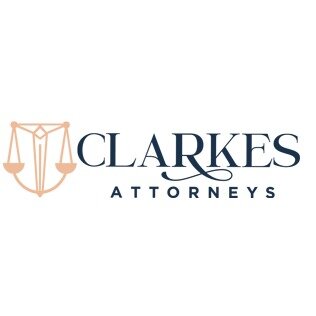Best Juvenile Law Lawyers in Lilongwe
Share your needs with us, get contacted by law firms.
Free. Takes 2 min.
List of the best lawyers in Lilongwe, Malawi
About Juvenile Law in Lilongwe, Malawi
Juvenile law in Lilongwe, Malawi, is centered around the protection and rehabilitation of minors - individuals typically under the age of 18. The legal framework aims to address the unique needs of juveniles who are involved in legal issues, either as offenders or victims, with an emphasis on their well-being and reintegration into society. The fundamental principles are guided by international conventions such as the United Nations Convention on the Rights of the Child, which Malawi has committed to uphold.
Why You May Need a Lawyer
There are several situations where individuals might require legal assistance in the realm of juvenile law. These include:
- Representation in court for juveniles accused of crimes.
- Assistance for children involved in custody disputes.
- Guidance for families dealing with cases of juvenile delinquency.
- Advocacy for victims of child abuse or neglect.
- Help with adoption processes or guardianship issues.
- Support for minors involved in family law issues such as parental separation or divorce.
Local Laws Overview
In Lilongwe, the key aspects of local laws related to juvenile law include:
- The Child Care, Protection and Justice Act: This act outlines the rights and protection measures for children, establishing procedures for juvenile justice and services for children in need.
- Customary Law: Traditional practices can sometimes intersect with formal juvenile laws, influencing decisions in family and community settings.
- Education Act: Laws ensuring the right to education, which are crucial for the development and empowerment of minors.
- Penal Code Provisions for Young Offenders: Specific legal provisions address the treatment and rehabilitation of juvenile offenders to prevent recidivism.
Frequently Asked Questions
What is the legal definition of a juvenile in Malawi?
In Malawi, a juvenile is defined as a person under the age of 18 years.
What rights do children have under Malawian law?
Children have rights to protection, education, health, and participation in matters affecting them, as well as the right to be heard in legal proceedings.
At what age can a minor be held criminally responsible?
In Malawi, children under 10 years cannot be held criminally responsible. However, those aged between 10 and 14 can be held responsible if it is proven that they understood the nature of their actions.
Can a juvenile be tried in the same court as adults?
No, juveniles are typically tried in specialized juvenile courts designed to address their specific needs and circumstances.
What alternatives to detention exist for juveniles?
Alternatives include community service, counseling, probation, and other rehabilitative measures aimed at reintegrating juveniles into society.
How can a juvenile seek legal representation?
A juvenile can seek legal representation through their guardian or a lawyer specializing in juvenile law. Legal aid services may also be available.
Are there special considerations for juveniles as victims of crime?
Yes, juveniles who are victims of crime are entitled to protective measures and support services to ensure their safety and recovery.
What role do family members play in juvenile legal proceedings?
Family members may act as guardians, provide support, or be involved in mediation and rehabilitation efforts.
How is juvenile delinquency addressed at community level?
Juvenile delinquency is often addressed through community-based programs that focus on education, mentorship, and resource provision.
What is the process for adopting a child in Malawi?
The adoption process involves legal steps that a prospective adoptive parent must follow, including a home study and legal approval from relevant authorities.
Additional Resources
For further assistance, individuals can reach out to the following resources:
- Ministry of Justice: Provides information and resources on legal matters, including juvenile law.
- Child Justice Court in Lilongwe: Specializes in handling cases involving minors.
- UNICEF Malawi: Offers support and guidance on child protection and welfare rights.
- Legal Aid Bureau: Provides legal assistance, especially for those who cannot afford private legal counsel.
- Social Welfare Department: Offers support services related to child protection and welfare.
Next Steps
If you need legal assistance in juvenile law, consider the following steps:
- Contact a lawyer who specializes in juvenile law to discuss your case.
- Visit the Legal Aid Bureau for potentially free legal support if you can't afford a private attorney.
- Reach out to NGOs and community organizations that provide support for juvenile-related issues.
- Ensure you have all relevant documentation and information regarding your case before seeking legal advice.
Lawzana helps you find the best lawyers and law firms in Lilongwe through a curated and pre-screened list of qualified legal professionals. Our platform offers rankings and detailed profiles of attorneys and law firms, allowing you to compare based on practice areas, including Juvenile Law, experience, and client feedback.
Each profile includes a description of the firm's areas of practice, client reviews, team members and partners, year of establishment, spoken languages, office locations, contact information, social media presence, and any published articles or resources. Most firms on our platform speak English and are experienced in both local and international legal matters.
Get a quote from top-rated law firms in Lilongwe, Malawi — quickly, securely, and without unnecessary hassle.
Disclaimer:
The information provided on this page is for general informational purposes only and does not constitute legal advice. While we strive to ensure the accuracy and relevance of the content, legal information may change over time, and interpretations of the law can vary. You should always consult with a qualified legal professional for advice specific to your situation.
We disclaim all liability for actions taken or not taken based on the content of this page. If you believe any information is incorrect or outdated, please contact us, and we will review and update it where appropriate.










